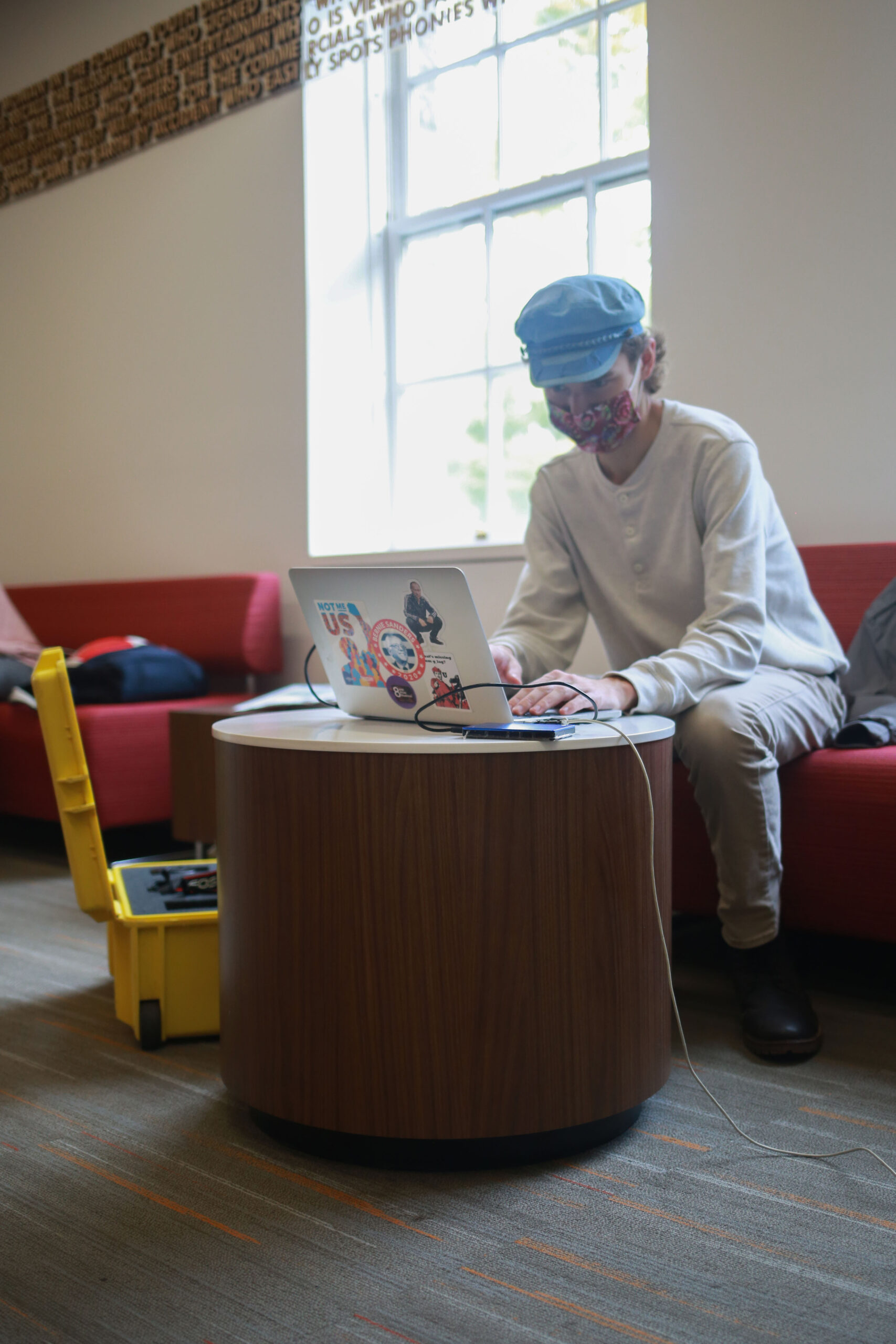Film student Lionel Jefferies takes his film production class online. Photo by Grace DeSanti.
Students and staff in the University of Rhode Island’s film media program are finding creative ways to conduct classes and produce work despite the COVID-19 pandemic.
Film media program director Rebecca Romanow stated that the program has developed ways to make the experience as positive as possible for students and faculty. For students enrolled in production classes, the learning experience has been a positive one.
“Our production courses are being taught in different ways across the spectrum,” Romanow said. “We have some that are face-to-face, some that are hybrid and some that are completely online.”
Over the summer, Romanow said that the program road-tested shipping camera kits to students who were enrolled in an entirely remote film production introductory course, giving them the opportunity to film in their own environment.
For students who had no experience using camera equipment, they were able to use their professors as a resource, as well as outside materials in order to learn how to work the equipment they were given.
“There are also real benefits to having a student learn equipment and be in a bit more of an independent situation where they might begin to figure things out by themselves, which faculty can support, so it worked quite well,” Romanow said.
Lionel Jeffries, a third-year student majoring in film studies, stated that the Media Equipment Center found in Ranger Hall, where students are able to rent out equipment, has been especially helpful this year for students.
“You couldn’t have an online film production class without the Media Equipment Center because the fact that it’s running at full capacity is what’s keeping this program alive right now, being that you can still go get gear and use it for your projects,” Jeffries said.
Jeffries, who is taking entirely remote production classes this semester, believes that the professors are doing a great job adapting to the new environment for students. One of his classes, which he said used to be heavy on the in-person learning, is now entirely remote.
“We used to meet once a week, make movies in class and have equipment lessons in class and some of that you just can’t do,” said Jeffries. “It was originally supposed to be a hybrid class but what Keith Brown, the professor, found is that it’s much easier for us to communicate with one another when we’re talking over Zoom instead of being socially distanced with masks in a room.”
While professors are giving more creative freedom to students since they have limited options for filming, there are still many challenges they face which students are trying to combat. Jeffries, who is continuing on a plan he established for a film he is making, has experienced this first-hand, especially in regards to finding filming locations.
While Romanow stated that the department does not want to continue the ways in which they adapted this semester forever, the impact has not been entirely negative. She believes that the pandemic has made film students and faculty adapt creatively through online classes.
“Film makers are incredibly creative and you make it happen with what you’ve got so this has been a great lesson for our students and for us as faculty,” Dr. Romanow said. “The idea that you must do it this one conventional way, well sometimes particularly in art, particularly in creativity, the world doesn’t deliver to the circumstances that you need.”

